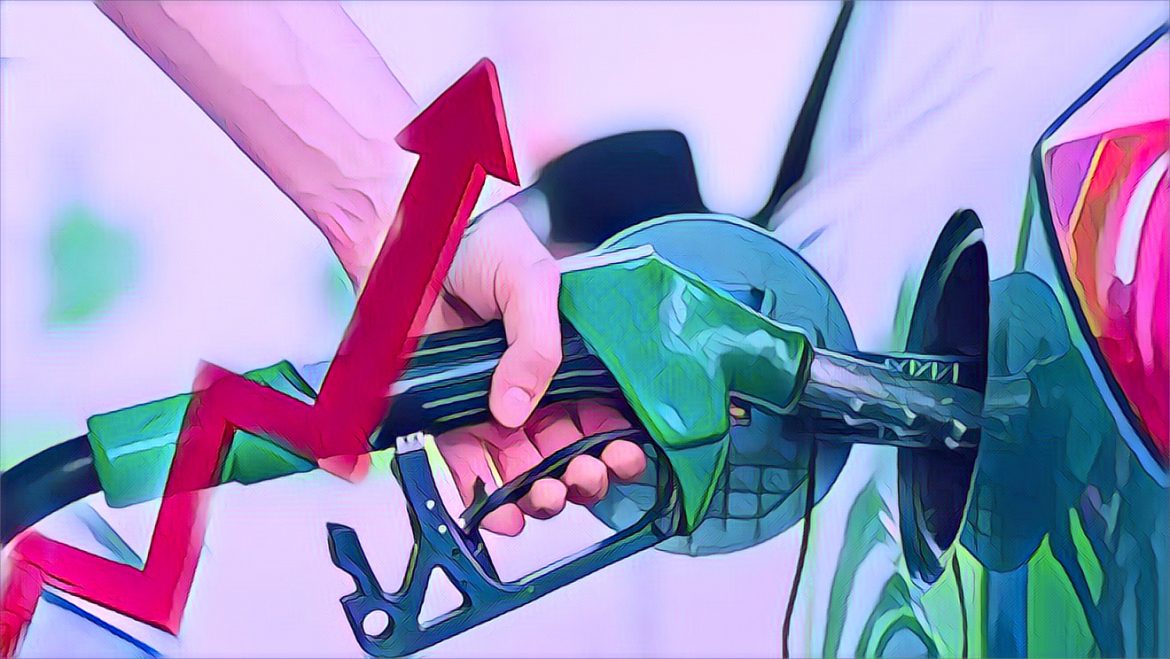Ghanaian consumers are bracing for a surge in fuel prices in the coming weeks, as two leading energy think tanks predict a hike of up to 8% for petrol, diesel and liquefied petroleum gas (LPG).
The Institute for Energy Security (IES) and the Chamber of Petroleum Consumers (COPEC) have both forecasted an increment in prices of these essential commodities by the end of February, citing the depreciation of the cedi against the dollar and a jump in prices of refined petroleum products on the international market.
Cedi under pressure
According to the IES, the cedi depreciated by 2.11% against the U.S. dollar in the last two weeks, making it more expensive to import fuel. The cedi, which started the year at 5.76 per dollar, has now weakened to 5.88 per dollar, according to the Bank of Ghana.
The depreciation of the cedi has been attributed to several factors, including the uncertainty caused by the disputed presidential election results, the impact of the COVID-19 pandemic on the economy, and the high demand for dollars by importers and businesses.
The IES said the cedi’s performance was the most influential factor in determining the percentage change in fuel prices for the second pricing window of February.
Global prices on the rise
The IES also said that the prices of refined petroleum products on the international market have increased significantly in the past two weeks, driven by the optimism over the COVID-19 vaccine rollout and the production cuts by the Organization of the Petroleum Exporting Countries (OPEC) and its allies.
The IES gathered that petrol, in the February second pricing window, started trade at $800.84 and closed at $814.05 per metric tonne, representing a 1.62% increase. Diesel closed trade at $855.70 compared to an opening price of $807.14 per metric tonne, representing a 5.67% increase. LPG traded at $535.41 at start and ended at $582.50 per metric tonne, representing an 8.08% increase.
Data compiled by Oilprice.com, a platform dedicated to monitoring oil prices, found that Brent crude performance has been slow over the past two weeks, with the bi-weekly average price per barrel standing at $75.32.
Consumers to bear the brunt
The projected increment in fuel prices will have a ripple effect on the cost of living and doing business in Ghana, as transport fares, food prices, utility bills and other essential services are likely to go up.
COPEC, which represents the interest of consumers, has appealed to the government to intervene and cushion consumers from the impending price shocks. COPEC urged the government to desist from increasing taxes and margins on all petroleum products to help stabilize prices.
The chamber also called on the government to expedite the processes of getting the Tema Oil Refinery back on stream to reduce the importation of finished products and save the country some foreign exchange.
The IES and COPEC have projected that petrol will increase by 6.63% to sell between GHS12.02 per litre and GHS13.29 per litre, while diesel will increase by 8.18% to sell at GHS14.60 per litre. LPG will sell between GHS12.58 per kg and GHS13.90 per kg.
Petrol and diesel are currently trading at a national average price of GHS 11.93 and 12.88 respectively, while LPG is pegged at GHS 12.07 per kilogram.
Despite the gloomy outlook for fuel prices, some analysts have expressed hope that the situation will improve in the long term, as the global economy recovers from the COVID-19 pandemic and the supply and demand of oil stabilizes.
Some experts have also suggested that Ghana should invest more in renewable energy sources, such as solar, wind and biomass, to reduce its dependence on imported fossil fuels and promote a green and sustainable economy.
Source: Modern Ghana





5 comments
Your article helped me a lot, is there any more related content? Thanks!
Can you be more specific about the content of your article? After reading it, I still have some doubts. Hope you can help me.
Bakal lo yang udah lama main slot online, jelas pernah ngalamin momen ngeselin: mau login, eh situs utama tiba-tiba nggak mampu dibuka.
Kadang kena blokir, kadang error random, kadang kala emang nasib lo lagi kurang hoki
aja.
Hokiku88 kini menjadi salah satu situs slot terpercaya yang paling sering dicari oleh pemain Indonesia berkat kombinasi reputasi, keamanan, dan variasi permainan yang lengkap.
Your article helped me a lot, is there any more related content? Thanks! https://www.binance.info/ES_la/register?ref=VDVEQ78S